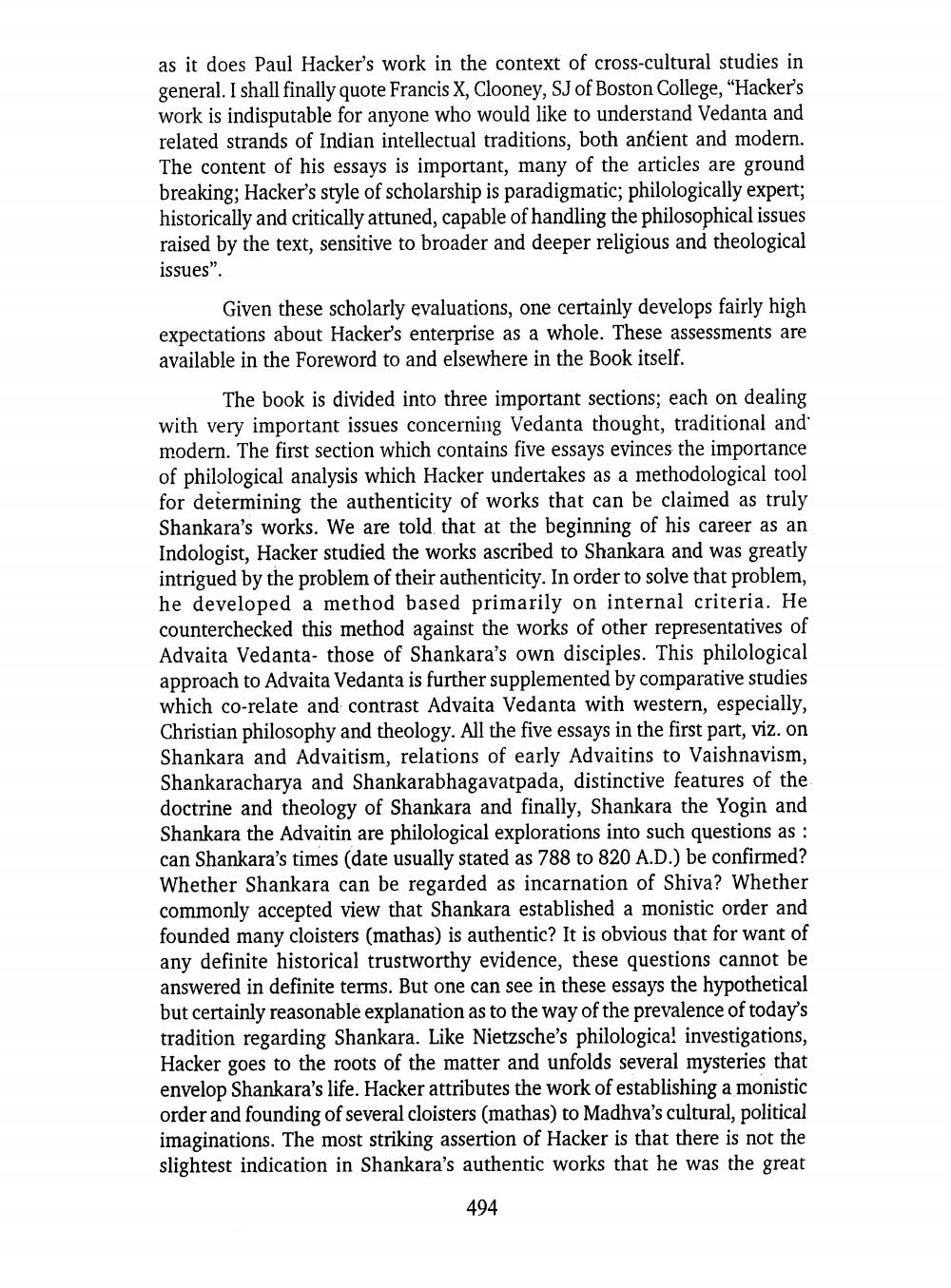________________
as it does Paul Hacker's work in the context of cross-cultural studies in general. I shall finally quote Francis X, Clooney, SJ of Boston College, “Hacker's work is indisputable for anyone who would like to understand Vedanta and related strands of Indian intellectual traditions, both ancient and modern. The content of his essays is important, many of the articles are ground breaking; Hacker's style of scholarship is paradigmatic; philologically expert; historically and critically attuned, capable of handling the philosophical issues raised by the text, sensitive to broader and deeper religious and theological issues".
Given these scholarly evaluations, one certainly develops fairly high expectations about Hacker's enterprise as a whole. These assessments are available in the Foreword to and elsewhere in the Book itself.
The book is divided into three important sections; each on dealing with very important issues concerning Vedanta thought, traditional and modern. The first section which contains five essays evinces the importance of philological analysis which Hacker undertakes as a methodological tool for determining the authenticity of works that can be claimed as truly Shankara's works. We are told that at the beginning of his career as an Indologist, Hacker studied the works ascribed to Shankara and was greatly intrigued by the problem of their authenticity. In order to solve that problem, he developed a method based primarily on internal criteria. He counterchecked this method against the works of other representatives of Advaita Vedanta- those of Shankara's own disciples. This philological approach to Advaita Vedanta is further supplemented by comparative studies which co-relate and contrast Advaita Vedanta with western, especially, Christian philosophy and theology. All the five essays in the first part, viz. on Shankara and Advaitism, relations of early Advaitins to Vaishnavism, Shankaracharya and Shankarabhagavatpada, distinctive features of the doctrine and theology of Shankara and finally, Shankara the Yogin and Shankara the Advaitin are philological explorations into such questions as : can Shankara's times (date usually stated as 788 to 820 A.D.) be confirmed? Whether Shankara can be regarded as incarnation of Shiva? Whether commonly accepted view that Shankara established a monistic order and founded many cloisters (mathas) is authentic? It is obvious that for want of any definite historical trustworthy evidence, these questions cannot be answered in definite terms. But one can see in these essays the hypothetical but certainly reasonable explanation as to the way of the prevalence of today's tradition regarding Shankara. Like Nietzsche's philological investigations, Hacker goes to the roots of the matter and unfolds several mysteries that envelop Shankara's life. Hacker attributes the work of establishing a monistic order and founding of several cloisters (mathas) to Madhva's cultural, political imaginations. The most striking assertion of Hacker is that there is not the slightest indication in Shankara's authentic works that he was the great
494




